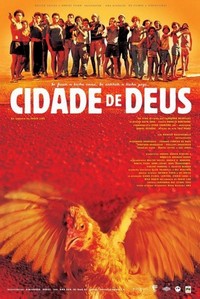
Cidade de Deus (2002)
City of God

Raiting: ![]() 8,5 /10
8,5 /10
Genre: Drama
Director: Fernando Meirelles, Kátia Lund
Stars: Alexandre Rodrigues, Leandro Firmino and Phellipe Haagensen
Country: Brazil / France
Release date: 30 August 2002
Length: 135 minutes


Raiting: ![]() 8,5 /10
8,5 /10
Genre: Drama
Director: Fernando Meirelles, Kátia Lund
Stars: Alexandre Rodrigues, Leandro Firmino and Phellipe Haagensen
Country: Brazil / France
Release date: 30 August 2002
Length: 135 minutes